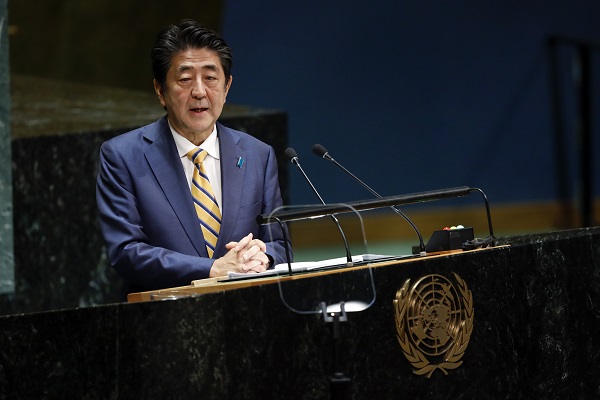Tokyo, (Samajweekly) Japan’s ruling Liberal Democratic Party (LDP) on Monday started a presidential election to pick the successor of outgoing Prime Minister Shinzo Abe, who announced his resignation last month due to health issues.
At a joint plenary meeting, LDP party members from both houses of Japan’s bicameral parliament and delegates from local chapters are voting to elect the party’s new leader, reports Xinhua news agency.
In the scaled-down vote, 394 Diet members will cast ballots and a total of 141 votes will be cast by three delegates each from the country’s 47 prefectural chapters.
The results are expected to be announced at around 3.30 p.m. (local time).
The race is between Yoshihide Suga, 71, Japan’s top government spokesperson and Chief Cabinet Secretary, Shigeru Ishiba, 63, a former Defence Minister, and Fumio Kishida, 63, the LDP’s policy chief.
The winner of the election is virtually assured of becoming the next Prime Minister owing to LDP’s dominance in parliament.
The new Prime Minister will be named at an extraordinary Diet session to on Wednesday.
Suga, having garnered the support of five of the seven major LDP factions, has a comfortable lead on the other two contenders.
Under normal circumstances, the top leader of the LDP would be chosen with Diet members belonging to the party and rank-and-file members holding 394 votes each.
However, due to Abe’s resignation in the middle of his term and the Covid-19 pandemic, the LDP decided to hold an abridged version of presidential election to simplify the process and to avoid a political vacuum.
On August 28, Abe, Japan’s longest serving Prime Minister, abruptly announced his intent to resign citing his chronic illness, but said he would remain in power until a successor was chosen.
In his announcement, the premier said that he needed to be treated for a flare-up of his intestinal disease that led his first one-year stint to end abruptly in 2007.
After stepping down in 2007 over a medical issue, he returned to the top job in 2012 after a landslide election win in the Lower House.
Abe, prior to his health condition, was set to spend one more year at the helm.










